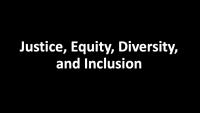
The Department of Anthropology welcomes all people to join us in working to reform the deeply entrenched racism and other cultural, economic, and institutional sources of inequality that are barriers to a just, equitable, and sustainable world.
We commit to furthering these goals in all of our professional activities, including research, scholarship, practice, teaching, public outreach among diverse communities of interest, and by assessing our own progress towards achieving these goals on an ongoing basis.
Anthropology is the study of the cultural and biological variation that characterizes the human species.
Our discipline fluoresced during the expansion of European cultures and it continues to bear the burden of racism and exploitation that are part of its history.
This intellectual legacy entails a unique scholarly perspective and an abiding social responsibility to study and to confront systems of inequality that remain pervasive in academia and society-at-large.
In acknowledgement of the legacy and responsibility of our field, the Department of Anthropology welcomes all people to join us in working to reform the deeply entrenched racism and other cultural, economic, and institutional sources of inequality that are barriers to a just, equitable, and sustainable world.
These core principles of legacy, responsibility, and justice compel us to foster a diverse and inclusive academic environment and we will make every effort to recruit, support, and retain students, staff, and faculty from historically excluded groups that are underrepresented in our discipline, in our university, and in our community.
We draw on our field's expertise and engagement with culture and biology and to further these goals in all of our professional activities, including research, scholarship, practice, teaching, and public outreach among diverse communities of interest, and by assessing our own progress towards achieving these goals on an ongoing basis.
In these commitments, we hope to be a model for an engaged, academic anthropology.
